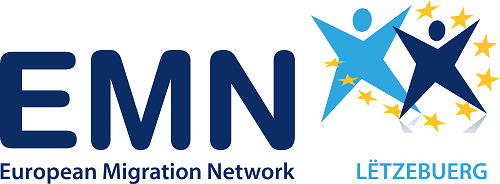The present report summarises the main findings of the LU Study on “Challenges and practices for establishing applicants’ identity in the migration process”.
For all migration procedures treated in this study, the establishment of the identity of the respective applicants is an essential element of the examination process. For all the procedures, it is obligatory for applicants to provide fingerprints and photographs in order to conduct comparisons with National and/or European databases (e.g. EURODAC, EUROPOL, VIS, SIS II, CCPD). This allows the Judicial Police, who is responsible for the identity verification/establishment, to inquire whether the applicant had entered the European Union using a valid passport and a visa, had been subject to an entry ban and/or had already applied for international protection in another Member State prior to applying in Luxembourg. The Judicial Police uses the information gained from these databases not only to verify the identity of the applicant, but also to verify the veracity of his/her statements.
In order to apply for a visitor’s visa and permits for the purposes of study, family reunification and remunerated activities, third country nationals are required to present valid travel document (i.e. a passport) and, if required, a valid visa and no exemptions are made. Furthermore, in the case of third-country nationals who apply for an authorisation of stay, the establishing identity is fundamental in order to grant the authorisation of stay. This means that if the identity of the applicant cannot be established this will lead, in the cases of study, family reunification and labour related activities, to a negative decision per se.
In the contexts of applications for international protection and of the return process, the Luxembourgish authorities also accept, in addition to official travel documents (i.e. passports and ID cards), a number of other documents as contributing to the establishing of identity in the various migration procedures, such as birth certificates, driving licences, marriage licences, divorce certificates, municipality cards etc. These documents may also help to prove the veracity of the applicant’s statements during the examination of his/her application. Furthermore, an interview with an agent of the Directorate of Immigration is enshrined in law in order to allow the applicant to put forward the reasons for applying for international protection and to clarify any contradiction or misrepresentation. Additional measures such as language analysis tests to determine the origin of the applicant as well as medical age assessment tests are also foreseen in the law and used if the identity of the applicant could not be established otherwise. However, these types of exams are not conclusive as to the identity of the person.

